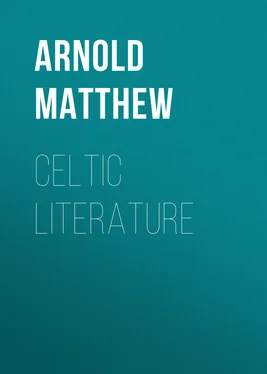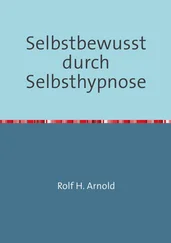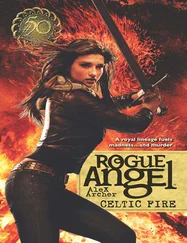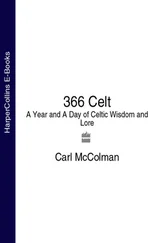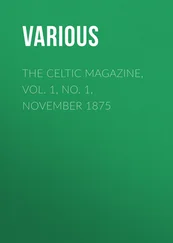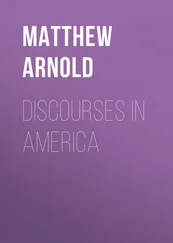Matthew Arnold - Celtic Literature
Здесь есть возможность читать онлайн «Matthew Arnold - Celtic Literature» — ознакомительный отрывок электронной книги совершенно бесплатно, а после прочтения отрывка купить полную версию. В некоторых случаях можно слушать аудио, скачать через торрент в формате fb2 и присутствует краткое содержание. Жанр: foreign_antique, Языкознание, literature_19, Культурология, на английском языке. Описание произведения, (предисловие) а так же отзывы посетителей доступны на портале библиотеки ЛибКат.
- Название:Celtic Literature
- Автор:
- Жанр:
- Год:неизвестен
- ISBN:нет данных
- Рейтинг книги:5 / 5. Голосов: 1
-
Избранное:Добавить в избранное
- Отзывы:
-
Ваша оценка:
- 100
- 1
- 2
- 3
- 4
- 5
Celtic Literature: краткое содержание, описание и аннотация
Предлагаем к чтению аннотацию, описание, краткое содержание или предисловие (зависит от того, что написал сам автор книги «Celtic Literature»). Если вы не нашли необходимую информацию о книге — напишите в комментариях, мы постараемся отыскать её.
Celtic Literature — читать онлайн ознакомительный отрывок
Ниже представлен текст книги, разбитый по страницам. Система сохранения места последней прочитанной страницы, позволяет с удобством читать онлайн бесплатно книгу «Celtic Literature», без необходимости каждый раз заново искать на чём Вы остановились. Поставьте закладку, и сможете в любой момент перейти на страницу, на которой закончили чтение.
Интервал:
Закладка:
So far, I go along with the stream of my brother Saxons; but here, I imagine, I part company with them. They will have nothing to do with the Welsh language and literature on any terms; they would gladly make a clean sweep of it from the face of the earth. I, on certain terms, wish to make a great deal more of it than is made now; and I regard the Welsh literature,—or rather, dropping the distinction between Welsh and Irish, Gaels and Cymris, let me say Celtic literature,—as an object of very great interest. My brother Saxons have, as is well known, a terrible way with them of wanting to improve everything but themselves off the face of the earth; I have no such passion for finding nothing but myself everywhere; I like variety to exist and to show itself to me, and I would not for the world have the lineaments of the Celtic genius lost. But I know my brother Saxons, I know their strength, and I know that the Celtic genius will make nothing of trying to set up barriers against them in the world of fact and brute force, of trying to hold its own against them as a political and social counter-power, as the soul of a hostile nationality. To me there is something mournful (and at this moment, when one sees what is going on in Ireland, how well may one say so!) in hearing a Welshman or an Irishman make pretensions,—natural pretensions, I admit, but how hopelessly vain!—to such a rival self-establishment; there is something mournful in hearing an Englishman scout them. Strength! alas, it is not strength, strength in the material world, which is wanting to us Saxons; we have plenty of strength for swallowing up and absorbing as much as we choose; there is nothing to hinder us from effacing the last poor material remains of that Celtic power which once was everywhere, but has long since, in the race of civilisation, fallen out of sight. We may threaten them with extinction if we will, and may almost say in so threatening them, like Cæsar in threatening with death the tribune Metellus who closed the treasury doors against him: ‘And when I threaten this, young man, to threaten it is more trouble to me than to do it.’ It is not in the outward and visible world of material life, that the Celtic genius of Wales or Ireland can at this day hope to count for much; it is in the inward world of thought and science. What it has been, what it has done, let it ask us to attend to that, as a matter of science and history; not to what it will be or will do, as a matter of modern politics. It cannot count appreciably now as a material power; but, perhaps, if it can get itself thoroughly known as an object of science, it may count for a good deal,—far more than we Saxons, most of us, imagine,—as a spiritual power.
The bent of our time is towards science, towards knowing things as they are; so the Celt’s claims towards having his genius and its works fairly treated, as objects of scientific investigation, the Saxon can hardly reject, when these claims are urged simply on their own merits, and are not mixed up with extraneous pretensions which jeopardise them. What the French call the science des origines , the science of origins,—a science which is at the bottom of all real knowledge of the actual world, and which is every day growing in interest and importance—is very incomplete without a thorough critical account of the Celts, and their genius, language, and literature. This science has still great progress to make, but its progress, made even within the recollection of those of us who are in middle life, has already affected our common notions about the Celtic race; and this change, too, shows how science, the knowing things as they are, may even have salutary practical consequences. I remember, when I was young, I was taught to think of Celt as separated by an impassable gulf from Teuton; 4 4 Here again let me have the pleasure of quoting Lord Strangford:—‘When the Celtic tongues were first taken in hand at the dawn of comparative philological inquiry, the tendency was, for all practical results, to separate them from the Indo-European aggregate, rather than to unite them with it. The great gulf once fixed between them was narrowed on the surface, but it was greatly and indefinitely deepened. Their vocabulary and some of their grammar were seen at once to be perfectly Indo-European, but they had no case-endings to their nouns, none at all in Welsh, none that could be understood in Gaelic; their phonesis seemed primeval and inexplicable, and nothing could be made out of their pronouns which could not be equally made out of many wholly un-Aryan languages. They were therefore co-ordinated, not with each single Aryan tongue, but with the general complex of Aryan tongues, and were conceived to be anterior to them and apart from them, as it were the strayed vanguard of European colonisation or conquest from the East. The reason of this misconception was, that their records lay wholly uninvestigated as far as all historical study of the language was concerned, and that nobody troubled himself about the relative age and the development of forms, so that the philologists were fain to take them as they were put into their hands by uncritical or perverse native commentators and writers, whose grammars and dictionaries teemed with blunders and downright forgeries. One thing, and one thing alone, led to the truth: the sheer drudgery of thirteen long years spent by Zeuss in the patient investigation of the most ancient Celtic records, in their actual condition, line by line and letter by letter. Then for the first time the foundation of Celtic research was laid; but the great philologist did not live to see the superstructure which never could have been raised but for him. Prichard was first to indicate the right path, and Bopp, in his monograph of 1839, displayed his incomparable and masterly sagacity as usual, but for want of any trustworthy record of Celtic words and forms to work upon, the truth remained concealed or obscured until the publication of the Gramatica Celtica . Dr. Arnold, a man of the past generation, who made more use of the then uncertain and unfixed doctrines of comparative philology in his historical writings than is done by the present generation in the fullest noonday light of the Vergleichende Grammatik , was thus justified in his view by the philology of the period, to which he merely gave an enlarged historical expression. The prime fallacy then as now, however, was that of antedating the distinction between Gaelic and Cymric Celts.’
my father, in particular, was never weary of contrasting them; he insisted much oftener on the separation between us and them than on the separation between us and any other race in the world; in the same way Lord Lyndhurst, in words long famous, called the Irish ‘aliens in speech, in religion, in blood.’ This naturally created a profound sense of estrangement; it doubled the estrangement which political and religious differences already made between us and the Irish: it seemed to make this estrangement immense, incurable, fatal. It begot a strange reluctance, as any one may see by reading the preface to the great text-book for Welsh poetry, the Myvyrian Archæology , published at the beginning of this century, to further,—nay, allow,—even among quiet, peaceable people like the Welsh, the publication of the documents of their ancient literature, the monuments of the Cymric genius; such was the sense of repulsion, the sense of incompatibilty, of radical antagonism, making it seem dangerous to us to let such opposites to ourselves have speech and utterance. Certainly the Jew,—the Jew of ancient times, at least,—then seemed a thousand degrees nearer than the Celt to us. Puritanism had so assimilated Bible ideas and phraseology; names like Ebenezer, and notions like that of hewing Agag in pieces, came so natural to us, that the sense of affinity between the Teutonic and the Hebrew nature was quite strong; a steady, middleclass Anglo-Saxon much more imagined himself Ehud’s cousin than Ossian’s. But meanwhile, the pregnant and striking ideas of the ethnologists about the true natural grouping of the human race, the doctrine of a great Indo-European unity, comprising Hindoos, Persians, Greeks, Latins, Celts, Teutons, Slavonians, on the one hand, and, on the other hand, of a Semitic unity and of a Mongolian unity, separated by profound distinguishing marks from the Indo-European unity and from one another, was slowly acquiring consistency and popularising itself. So strong and real could the sense of sympathy or antipathy, grounded upon real identity or diversity in race, grow in men of culture, that we read of a genuine Teuton,—Wilhelm von Humboldt—finding, even in the sphere of religion, that sphere where the might of Semitism has been so overpowering, the food which most truly suited his spirit in the productions not of the alien Semitic genius, but of the genius of Greece or India, the Teutons born kinsfolk of the common Indo-European family. ‘Towards Semitism he felt himself,’ we read, ‘far less drawn;’ he had the consciousness of a certain antipathy in the depths of his nature to this, and to its ‘absorbing, tyrannous, terrorist religion,’ as to the opener, more flexible Indo-European genius, this religion appeared. ‘The mere workings of the old man in him!’ Semitism will readily reply; and though one can hardly admit this short and easy method of settling the matter, it must be owned that Humboldt’s is an extreme case of Indo-Europeanism, useful as letting us see what may be the power of race and primitive constitution, but not likely, in the spiritual sphere, to have many companion cases equalling it. Still, even in this sphere, the tendency is in Humboldt’s direction; the modern spirit tends more and more to establish a sense of native diversity between our European bent and the Semitic and to eliminate, even in our religion, certain elements as purely and excessively Semitic, and therefore, in right, not combinable with our European nature, not assimilable by it. This tendency is now quite visible even among ourselves, and even, as I have said, within the great sphere of the Semitic genius, the sphere of religion; and for its justification this tendency appeals to science, the science of origins; it appeals to this science as teaching us which way our natural affinities and repulsions lie. It appeals to this science, and in part it comes from it; it is, in considerable part, an indirect practical result from it.
Интервал:
Закладка:
Похожие книги на «Celtic Literature»
Представляем Вашему вниманию похожие книги на «Celtic Literature» списком для выбора. Мы отобрали схожую по названию и смыслу литературу в надежде предоставить читателям больше вариантов отыскать новые, интересные, ещё непрочитанные произведения.
Обсуждение, отзывы о книге «Celtic Literature» и просто собственные мнения читателей. Оставьте ваши комментарии, напишите, что Вы думаете о произведении, его смысле или главных героях. Укажите что конкретно понравилось, а что нет, и почему Вы так считаете.
